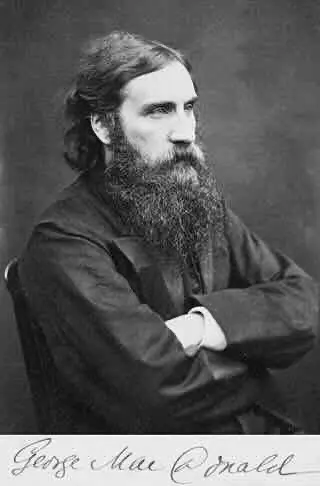On December 10, 1824 in Celtic History
George MAC donald, scottish novelist poet creator of childrens fairy stories born

George MacDonald (10 December 1824 – 18 September 1905) was a Scottish author, poet and Christian Congregational minister, was born on December 10, 1824, in Huntly, Aberdeenshire, Scotland.
He became a pioneering figure in the field of modern fantasy literature and the mentor of fellow-writer Lewis Carroll. In addition to his fairy tales, MacDonald wrote several works of Christian theology, including several collections of sermons. He became a notable figure in Victorian literature and was a significant influence on later fantasy writers, including C.S. Lewis and J.R.R. Tolkien.
Literary Career
George MacDonald wrote a diverse range of works, including novels, poetry, and fairy tales. He gained popularity for his novels such as “Phantastes” (1858) and “The Princess and the Goblin” (1872).
Influence on Fantasy Literature
MacDonald is often considered a pioneer in the fantasy genre. His imaginative and allegorical works laid the groundwork for later fantasy writers. C.S. Lewis, in particular, acknowledged MacDonald’s influence on his own writing.
Fairy Tales
MacDonald is best known for his fairy tales and fantasy stories. “The Princess and the Goblin” and its sequel “The Princess and Curdie” are among his most beloved works for children.
Religious and Moral Themes
Many of MacDonald’s works, especially his fairy tales, incorporate religious and moral themes. His writing reflects his Christian beliefs, and he used allegory to convey spiritual truths.
Connections to Lewis Carroll
MacDonald was a friend and mentor to Lewis Carroll (Charles Lutwidge Dodgson), the author of “Alice’s Adventures in Wonderland.” MacDonald’s own children served as inspiration for some of Carroll’s characters.
Later Life
George MacDonald’s literary career spanned several decades, and he continued to write and publish until his death. He passed away on September 18, 1905, in Ashtead, Surrey, England.
George MacDonald’s legacy endures through his contributions to literature, especially in the fantasy and fairy tale genres. His imaginative storytelling and moral insights continue to captivate readers, and his impact on the development of fantasy literature remains significant.
Related Content

Shane Patrick Lysaght MacGowan, lead singer of the Pogues, died

St Machar Day, patron saint of Aberdeen

Oíche Shamhna - Cetlic New Year Eve (Halloween)

ALBAN ELFED (Welsh Bardic name for autumn equinox)

Feast day of St. James

John Davie Burgess, King of the Highland Pipers, died at age 71.